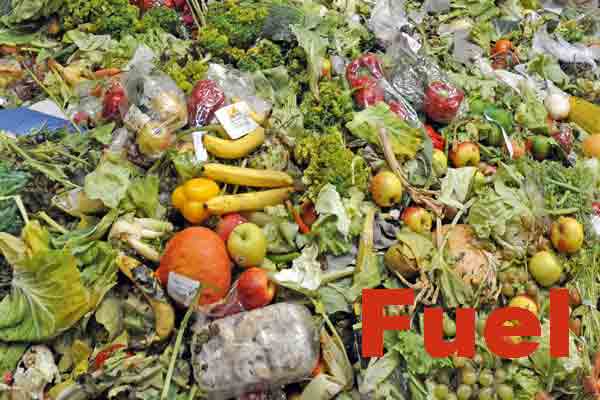New Jersey looking at ways to convert food waste into fuel

In the 1985 film Back to the Future Dr. Emmet Brown returns from the future in a car that is powered by food waste using Mr. Fusion. (Photo by Back to the Future™)
The food waste from a local supermarket, restaurant, or catering hall could end up being the fuel that serves a source of renewable energy for New Jersey.
That’s the goal of a bill moving through the Legislature, which would require large generators of garbage to separate and recycle food waste with the aim of converting it to energy.
The bill (S-771), approved by the Senate Environment and Energy Committee last week, would encourage composting and building more food-waste-to-energy facilities in the state.

Food waste is a big source of trash in the United States, according to the federal Environmental Protection Agency, with Americans throwing away more than 36 million tons in 2012. Less than 5 percent of that was recycled.
Most of the rest ends up in garbage dumps, where it rots and releases methane into the atmosphere, a potent greenhouse gas contributing to global climate change.
The proposed bill is similar to laws that have been adopted in Connecticut and Massachusetts, as well as a number of large cities, including New York, which requires food scraps to be separated by sizable generators of waste, like hospitals, prisons, and supermarkets.
“This is an intelligent alternative to improve our environment,’’ said Sen. Bob Smith (D-Middlesex), the sponsor of the bill. “We have a problem with waste in this country, and recycling solid waste is a viable system that will produce energy to provide to our homes, schools and businesses.’’
According to the EPA, if half of food waste could be properly recycled and used as a fuel for energy, enough electricity would be generated to power 2.5 million homes for a year.
A study by Rutgers University’s Agricultural Experimental Station last year suggested that New Jersey was not utilizing the potential energy from biomass — organic materials like plants and waste that could be used to produce electricity or propel vehicles.
Beyond just curbing greenhouse-gas emissions, biomass, largely underutilized, could reduce dependence on fossil fuels and improve air quality, according to the study. The state spent about $3 million last year trying to promote biomass energy.
“This is common sense and it works to resolve multiple problems, from generation of energy so we can work to become more energy efficient to addressing our landfill issues, as well as combatting global warming,’’ Smith said.
The legislation would affect large food-waste generators located within 25 miles of an authorized recycling facility. The generators would be required to separate the food waste if they generated a volume of more than 104 tons per year.
__________________________________________
NJ Spotlight, an independent online news service on issues critical to New Jersey, makes its in-depth reporting available to NewsWorks.
WHYY is your source for fact-based, in-depth journalism and information. As a nonprofit organization, we rely on financial support from readers like you. Please give today.




